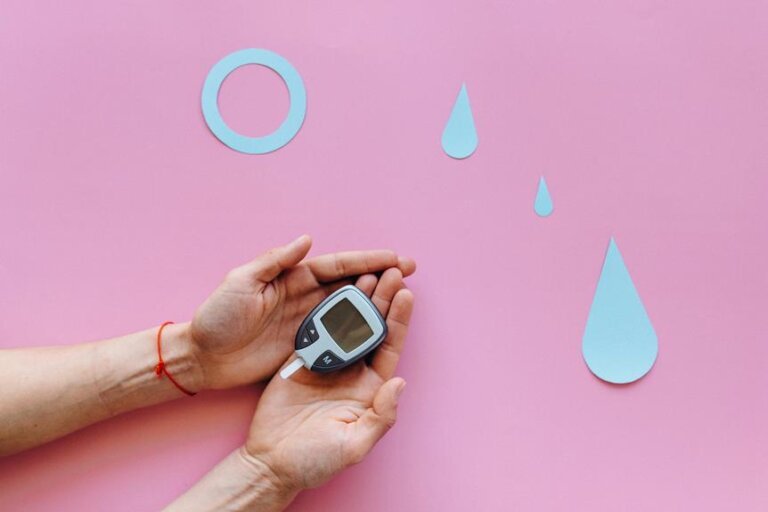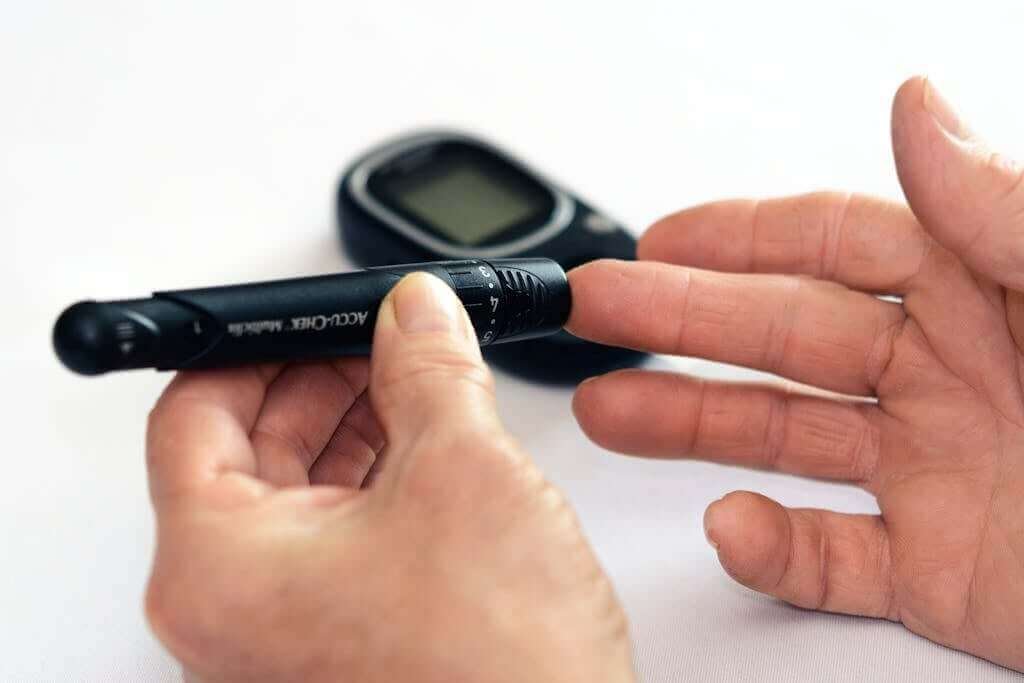5 Effective Treatments for Diabetes Neuropathy
When it comes to navigating the complex landscape of diabetes neuropathy, think of these treatments as tools in your toolkit. Each method serves a unique purpose in managing the symptoms and progression of this condition.
As you explore the realm of lifestyle modifications, medications, physical therapy, acupuncture, and nutritional supplements, you might find a path that resonates with your journey towards relief and improved quality of life.
Lifestyle Modifications
To effectively manage diabetes neuropathy, consider incorporating lifestyle modifications such as regular exercise and a balanced diet into your daily routine. Physical activity can help improve blood circulation and control blood sugar levels, reducing the risk of nerve damage associated with diabetes. Aim for at least 30 minutes of moderate exercise most days of the week, such as walking, swimming, or cycling.
In addition to exercise, focusing on a balanced diet is crucial. Opt for whole foods like fruits, vegetables, whole grains, and lean proteins to provide essential nutrients that support nerve health. Avoiding sugary drinks and processed foods high in unhealthy fats can also help in managing diabetes neuropathy symptoms.
Furthermore, maintaining a healthy weight plays a significant role in managing diabetes neuropathy. Excess weight can put additional pressure on nerves and worsen symptoms. By incorporating these lifestyle modifications into your daily routine, you can help alleviate discomfort and improve your overall quality of life while living with diabetes neuropathy.
Medications
In managing diabetes neuropathy, incorporating lifestyle modifications like regular exercise and a balanced diet is vital; however, for more targeted relief, exploring medication options can provide additional support. Medications play a crucial role in managing the symptoms of diabetic neuropathy.
Your healthcare provider may prescribe medications such as anticonvulsants like gabapentin or pregabalin to help manage nerve pain. These medications work by stabilizing electrical activity in the nerves, reducing pain signals sent to the brain.
Another class of drugs commonly used are tricyclic antidepressants like amitriptyline, which can help alleviate nerve pain by affecting neurotransmitters. Additionally, certain medications like duloxetine, a serotonin-norepinephrine reuptake inhibitor, may also be prescribed to manage neuropathic pain.
It's essential to work closely with your healthcare team to determine the most suitable medication based on your individual symptoms and medical history. Remember to follow your doctor's instructions carefully and report any side effects promptly to ensure effective management of diabetes neuropathy symptoms.
Physical Therapy
Physical therapy plays a crucial role in managing diabetes neuropathy by providing targeted exercises to improve nerve function and alleviate symptoms. These exercises are specifically designed to increase flexibility, strength, and circulation in the affected areas, helping to reduce pain and improve overall mobility. By working with a physical therapist, you can develop a personalized exercise plan that suits your individual needs and limitations.
In addition to targeted exercises, physical therapy can also include techniques such as manual therapy, electrical stimulation, and ultrasound therapy to further enhance nerve function and reduce discomfort. These modalities can help in improving blood flow, reducing inflammation, and promoting healing in the damaged nerves.
Consistency is key when it comes to physical therapy for diabetes neuropathy. By adhering to your prescribed exercise regimen and attending regular therapy sessions, you can experience long-term benefits in managing your symptoms and preventing further nerve damage. Remember to communicate openly with your physical therapist about any changes or concerns you may have during the treatment process for optimal results.
Acupuncture
Explore how acupuncture can complement your diabetes neuropathy treatment regimen by targeting specific nerve pathways and promoting natural pain relief. Acupuncture, a traditional Chinese medicine practice, involves the insertion of thin needles into specific points on the body to stimulate energy flow. In the case of diabetes neuropathy, acupuncture aims to alleviate pain, tingling, and numbness by triggering the release of endorphins, the body's natural painkillers. This ancient technique can help improve blood circulation, reduce inflammation, and enhance nerve function, offering a holistic approach to managing neuropathic symptoms.
Many individuals find acupuncture to be a safe and effective way to manage diabetes neuropathy discomfort. By addressing the root cause of the pain and targeting the affected nerve pathways, acupuncture can provide relief and improve overall well-being. It's essential to consult with a qualified acupuncturist who's experience in treating neuropathy to ensure the best results. Consider integrating acupuncture into your diabetes neuropathy treatment plan to explore its potential benefits in managing your symptoms.
Nutritional Supplements
Considering incorporating nutritional supplements into your diabetes neuropathy management plan may provide additional support in alleviating symptoms and promoting nerve health.
Supplements such as alpha-lipoic acid, vitamin B12, and acetyl-L-carnitine have shown promise in reducing nerve pain and improving nerve function.
Alpha-lipoic acid, a powerful antioxidant, can help reduce inflammation and oxidative stress in the nerves, potentially easing neuropathic symptoms.
Vitamin B12 plays a crucial role in nerve health and function, and its supplementation may aid in relieving neuropathy symptoms.
Acetyl-L-carnitine is believed to enhance nerve regeneration and reduce pain perception in individuals with diabetes neuropathy.
Before adding any nutritional supplements to your regimen, consult with your healthcare provider to ensure they're safe and appropriate for you, considering any potential interactions with your current medications.
It's essential to choose high-quality supplements from reputable brands to ensure potency and purity.
While nutritional supplements can complement your diabetes neuropathy treatment plan, they shouldn't replace prescribed medications or other recommended therapies.
Frequently Asked Questions
Are There Any Alternative Therapies or Complementary Treatments That Can Help With Diabetic Neuropathy?
Looking for alternative or complementary treatments for diabetic neuropathy? There are various options like acupuncture, yoga, and supplements that some find helpful. Always consult with your healthcare provider to ensure safe and effective choices.
How Can Mental Health Support or Counseling Play a Role in Managing Diabetic Neuropathy Symptoms?
In managing diabetic neuropathy symptoms, mental health support or counseling can help you cope with the emotional impact of the condition, reduce stress levels, improve overall well-being, and enhance your ability to adhere to treatment plans.
What Are Some Preventative Measures That Can Be Taken to Reduce the Risk of Developing Diabetic Neuropathy?
To reduce the risk of developing diabetic neuropathy, manage blood sugar levels through diet, exercise, and medication. Regular check-ups, foot care, and quitting smoking are crucial. Stay proactive in your health to prevent complications.
Can Diabetic Neuropathy Be Reversed or Cured With Certain Treatments or Interventions?
You can manage diabetic neuropathy with treatments to alleviate symptoms, but complete reversal or cure may not be possible. Regular monitoring, lifestyle changes, medications, and therapies can help control pain and prevent progression, improving quality of life.
Are There Any Clinical Trials or Experimental Treatments for Diabetic Neuropathy That Patients Can Participate In?
In the realm of clinical trials and experimental treatments for diabetic neuropathy, you can actively seek out opportunities to participate. By engaging in these studies, you not only contribute to research but also potentially benefit from cutting-edge therapies.
Conclusion
Just like a road map guides you on a journey, these treatments can help navigate the path to managing diabetes neuropathy.
By making small lifestyle changes, taking prescribed medications, engaging in physical therapy, trying alternative therapies like acupuncture, and incorporating nutritional supplements, you can pave the way to a healthier, more comfortable life.
Remember, each step you take brings you closer to relief and improved quality of life.




